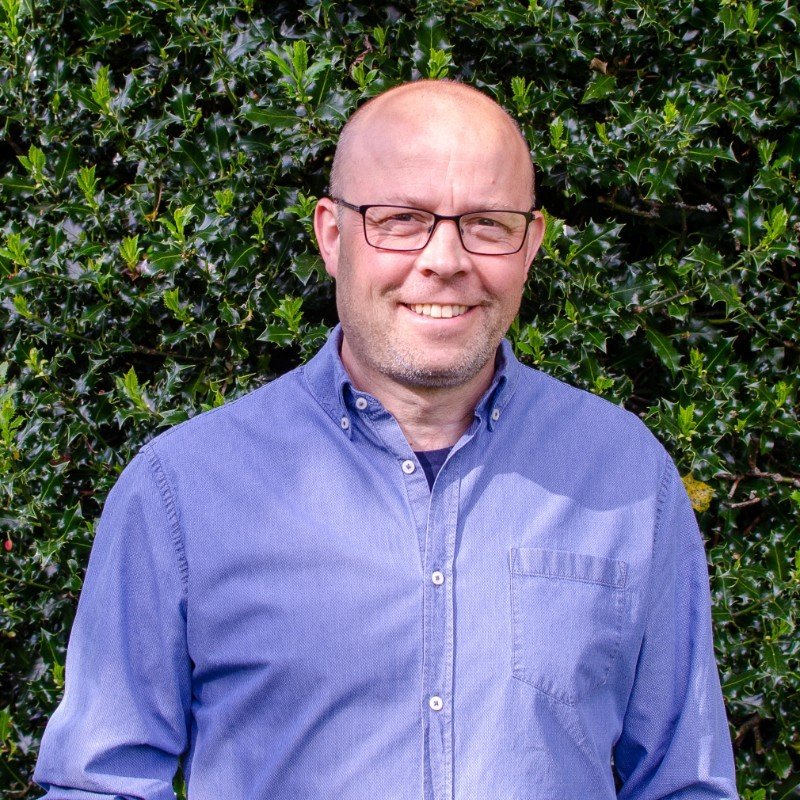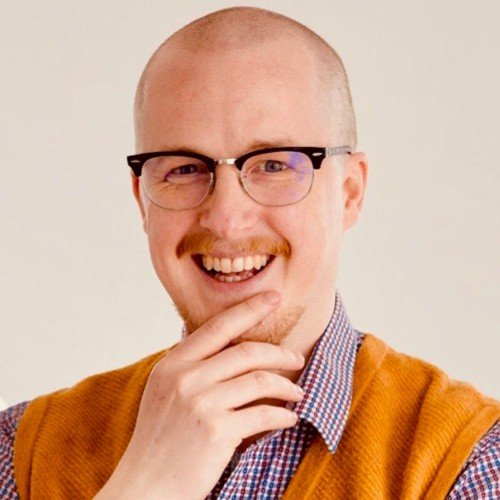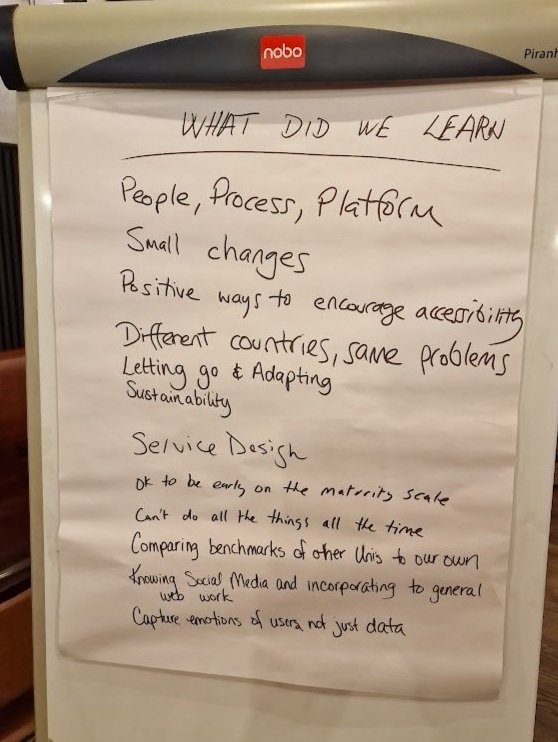HE Connect Liverpool 23
Let’s make higher education better
The conference is tailored for digital leaders in higher education and features 2 packed days with a carefully curated mixture of talks, workshops, activities and world class facilitators, thought-provokers, speakers and session leads.
Program
Tuesday, September 26
8:30 - 9:30: Breakfast and registration
Join us early, get the conversation started, make some new friends and enjoy some freshly brewed coffee and tea.
9:30 - 9:45: Welcome & Opening
by our host Janus Boye, Boye & Co
9:45 - 10:30
by Eric Greenberg, Senior Director, Marketing Operations at The Wharton School
Higher Education has unique challenges regarding digital marketing, from its decentralized administrative structure, which often pits departments and programs against one another, to difficulty acquiring and retaining staff experienced in contemporary marketing platforms.
How can schools take advantage of digital marketing opportunities without spending a fortune on enterprise-level but underutilized platforms?
The answer is simple. Literally. Having worked with various schools on the economic spectrum, Eric Greenberg's solution to helping schools grow in marketing sophistication is to purposely and conscientiously "keep it simple" and progressively scale efforts.
In this opening keynote, Eric will talk about what that means and how schools can use marketing automation platforms and CRM systems while still keeping it simple by not buying into the sales pitches of multi-billion dollar companies and instead charting our own paths towards success.
10.30 - 11:00 Coffee & networking
Building digital capacity
11.00 - 11.45
Led by Mike Deyes, Associate Director of Marketing (Digital) at University of Liverpool
Building the case for digital has been tough, and frustrating! Is it getting better?
Mike will share thoughts from almost two decades working in digital higher education showing why, despite the difficulties, we can be optimistic about the future.
In HE digital there is an endless wave of demand, a lack of understanding from leaders and deep structural issues. This has led to the sector to produce more ‘Frankensites’ - awkward, cobbled-together web solutions - than we would like to admit.
We all know that digital are crucial communication and marketing channels – so why hasn’t the sector invested more? Why is it that it has been so undervalued?
Mike will share some stories of frustration that will resonate with those grappling similar questions and also look across the sector to see what progress is being made. Lastly, he will explore what continued challenges and opportunities there are for our profession.
Anatomy of a Digital Experience team
11:45 - 12:30
By Francesco Martino, Web communications manager at European University Institute
In the realm of digital transformation, it's common to pigeonhole a Digital Experience Team as a mere front-end design squad or a technical unit focused on software and applications. Yet, what defines the digital experience when faced with a beautifully designed tool that operates at a snail's pace or delivers subpar search results?
In my tenure as the leader of the web unit at EUI for over a decade, I've observed and actively led the metamorphosis from a conventional web unit into a dynamic, responsive Digital Team.
Join me for an in-depth exploration of this journey. More importantly, I'm eager to hear your experiences and insights, as we delve into the essence of a Digital Experience Team. It's a team that not only comprehends the strategic and political objectives of a university but also underpins them with digital tools that are lightning-fast, accessible, and aesthetically pleasing.
The required skill set spans from project management to coding and web design, but the key is not just having the right skills; it's about carving out a distinct space within your university. For us at EUI, this space resides at the intersection of ICT, Communications, and Library, fostering daily interactions with academic departments and receiving robust top-down support to create a sustainable and cohesive digital strategy
In the era of AI, this urgency is heightened, pushing us to remain aligned with the new internet revolution while steering clear of fragmentation within higher education environments.
So, what constitutes the ideal scenario? I have a proposal to kickstart our discussion, and I'm excited to collaborate with you all in refining and expanding upon it.
12:30 - 1.30 Lunch
Making the case for building Service Design capability
1:30 - 2:30
Led by Val Mitchell (UK) - Academic Lead for Learning Design at Snook and
Graham Hancox (UK), Senior UX Researcher at University of Nottingham
Higher Education institutions face unprecedented complex challenges including decreasing funding, increasing competition for students and a need to rapidly transform digital infrastructure to deliver learning and teaching experiences that match expectations of students and staff. At the same time the sector is grappling with systemic issues related to sustainability, diversity, equity, inclusion, and mental health and wellbeing.
Service Design is a human centred, creative and iterative approach to service innovation with roots in design and business. In this presentation we will make the case for building Service Design capability within Higher Education institutions in order to address these complex challenges and reflect on how Service Design complements more established lean improvement and digital transformation processes.
We will draw on case studies from the University of Nottingham’s cross functional Service Design team where Graham is a Senior UX researcher and Val’s experience practicing and teaching Service Design at Snook, a leading Service Design agency based in Glasgow and London.
2:30 - 3:00 Coffee & networking
How to Eat the Digital Accessibility Elephant
3:00 - 3:45
Led by Kate DeForest, Digital Content Coordinator at SUNY College at Oswego
Creating an accessibility digital culture can seem like an impossible task. But, broken down into small pieces, the process becomes a lot more manageable.
In the book “Atomic Habits,” James Clear discusses ways to minimally shift our environment, actions, and mindset to help encourage and support good habits. While reading this book, Kate DeForest realized that very similar principles and techniques were already being used at State University of New York at Oswego to help improve digital accessibility. Inspired by examples provided in the book, Kate will offer stories, techniques and suggestions of how to adapt the four laws of Atomic Habits to digital accessibility. The Atomic Habits laws are:
Make it obvious,
Make it attractive,
Make it easy, and
Make it satisfying.
Focusing on small, actionable steps that can be incorporated into everyday habits and workflows allows people to obtain results without becoming overwhelmed.
This session is for new accessibility practitioners, team leaders, content creators, and anyone looking for ways to easily introduce and incorporate digital accessibility. Attendees can expect to come away with new ideas and approaches that they can use to incorporate accessibility principles as well as ways to help encourage others.
Managing alumni online communities: a data-driven approach
3:45 - 4:30
Led by Tina Schmechel, Alumni Communications & Digital Marketing Officer at Imperial College
The majority of online communities - around 70% according to some studies - are destined to fail. Whether it is due to a lack of staff, purpose, time or strategy, building a thriving and engaged online audience is no easy feat.
Most communities appear to lose momentum the moment they are launched.
What if we took a step back, really listened to our users and focused on what the data is telling us?
4:30 - 5:00 Coffee & networking
5:00 - 6:00 Lightning Talks
As the name suggests, lightning talks give speakers a limited amount of time to make their presentation – around 10 minutes. They may or may not include slides.
Because lightning talks are brief, it requires the speaker to make their point clearly and rid the presentation of non-critical information. This, in turn, helps keep the attention of the audience. It also means many ideas can be presented in a short amount of time.
Talks:
* 5 key practical takeaways to adapt to changes in user behaviour and expectations by Carole Wynne-Zabbal, Terminalfour (slides | webinar)
* European University Institute: Website audit and report by Francesco Martino
* Why ads doesn’t work for top-funnel leads by Eric Greenberg, Wharton
* The personalisation vs privacy paradox: how to come out on top by Toby Margetts, Squiz
* What we need from leaders to deliver digital change by Rhiannon Davies, University of Bristol
* Why does domains keep appearing and what can we do about it? By Gavin Colborne, Little Forest
6:30 - 10:00 Social event
Join us for an informal networking dinner at Rudy's Neapolitan Pizza on Bold Street
Wednesday, September 27
7:00 Morning Run
We meet in front of Everyman for a relaxed 25 minute run to the famous Beatles Statue and back
8:30 - 9:30 Breakfast and networking
Join us early, get the conversation started, reflect on what you’ve already learned and enjoy some freshly brewed coffee and tea.
9:30 - 9:45: Morning welcome
The now and next of AI, a collaborative exploration
9:45- 10:45
By Jonty Lewis, Adopting agile and product dev at University of Birmingham
AI has never been more influential in shaping the world, and understanding its trajectory is crucial for everyone, irrespective of their fields of interest or profession. This session, “The now and next of AI, a collaborative exploration”, invites participants to engage in an enlightening open space workshop that harnesses the principles of Agile methodology to explore and understand the 'now' and 'next' of AI.
The workshop is set up to encourage spontaneous, self-organising interactions, fostering a dynamic environment where participants are free to explore, question, and share insights about the present state and future potential of AI.
Upon concluding the session, participants will have the chance to reflect on the agile principles used during the open space workshop.
Come, join us in this exploration of the exciting realm of AI and gain a unique perspective on Agile principles' usage in real-time learning and problem-solving. Whether you are an AI enthusiast, an Agile practitioner, or someone simply curious about these powerful concepts, this session will equip you with fresh insights and ideas to take back to your personal or professional life.
10:45 - 11:00 Coffee & networking
The Phylogenetic Tree in Forms Design: making forms work for complex academic applications
11:00 - 11:45
By Caroline Jarrett (UK), Forms specialist at Effortmark & Karen Fernandes (UK), Senior Product Manager at University of Cambridge
In a phylogenetic tree, biologists use a series of characteristics and questions to consider how organisms might be related to each other, or differ.
Similarly, academic grant and award application processes can look very different from the point of view of, say, engineering (a fish?) and archaeology (a flower?).
How can we guide busy academics in specialist fields through application processes that are complex, vary greatly depending on the funder, and always seem to be extra urgent? Especially when the stakes are high: awards can be in the millions, and research income is important to fund work that we can all benefit from.
In this case study, we’ll reflect on current work at the University of Cambridge and on how forms patterns from government can help (or hinder) this sort of multi-person, multi-challenge process.
5 Things I learned managing a world-famous university's social channels
11:45 - 12:30
Led by Sarah-Jean Ng (UK)
Social Media Manager at University of Cambridge
"Why does Cambridge need social media?" 🤔
The media is always watching 🎯
How to make the stuff 📹✍📸
Who are we making this for again?
The bits I love the most 😍
Let me bare my soul for 30 minutes, then for 15 minutes, you can Ask Me Anything*.
Bring your phones and an open mind. I might ask you to do some stuff.
*About the job, but I'll answer pretty much anything. You may not like the answer though.
12:30 - 1:30 Lunch
Panel: Preparing for what comes next
1:30 - 2:30
Panelists:
* Eric Greenberg, Marketing Operations Leader at The Wharton School
* Rhiannon Davies, Deputy Director of Digital Experience at the University of Bristol
* Simon Jones, MD at Studio 24
Moderator: Janus Boye
Topics:
* Accessibility
* AI
* Composability
* Personal resilience to deliver change
* Sustainability
* Where does digital belong














